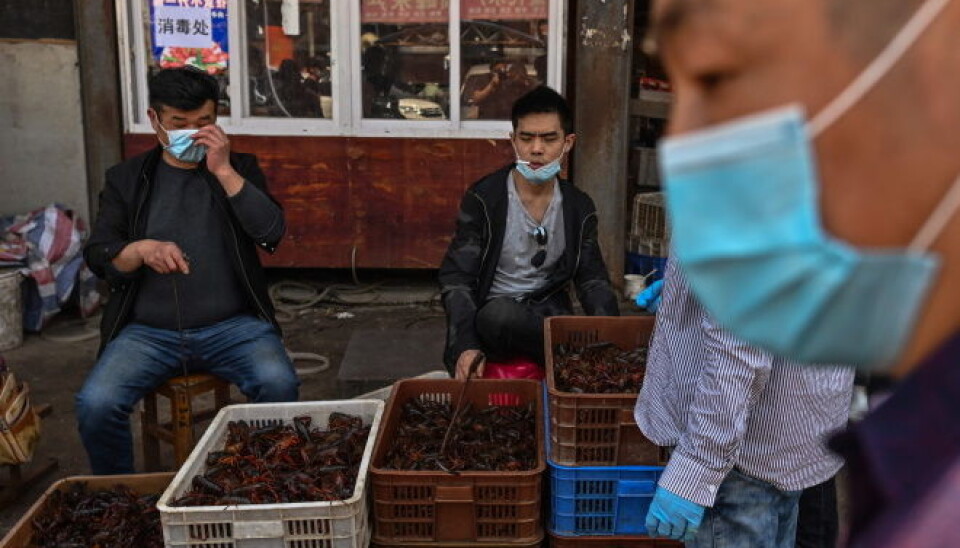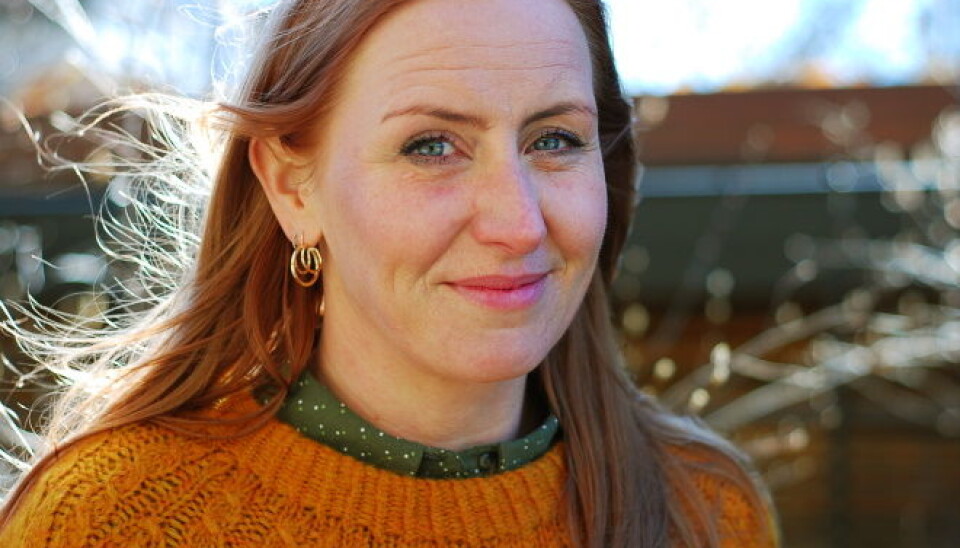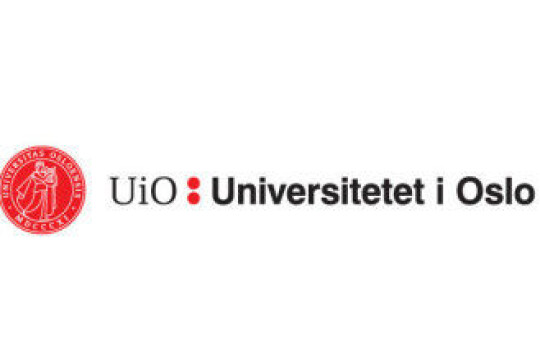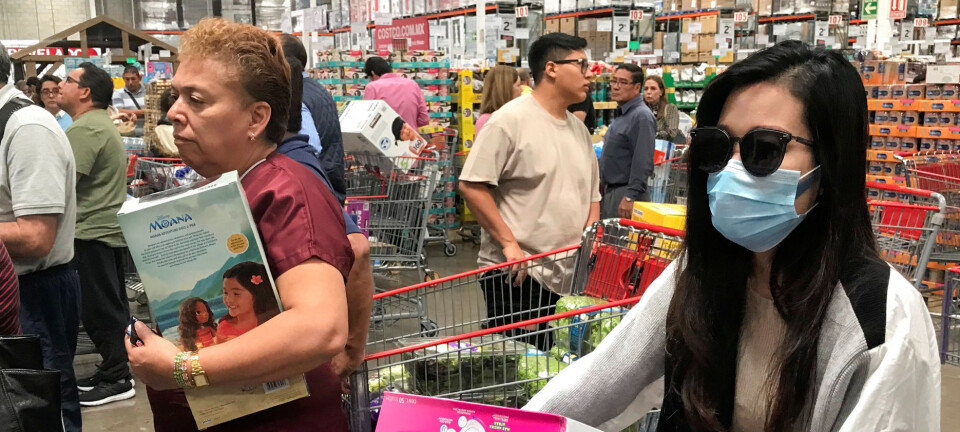This article is produced and financed by the University of Oslo - read more

The world with viruses: Challenging interactions between animals and humans
“If we want to prevent the recurrence of a similar crisis, we need to be asking more systematic questions about how we are handling, using and looking after animals,” says researcher Tone Druglitrø.
The ResBod research project commenced just before Norway went into lockdown.
Tone Druglitrø, Associate Professor at the TIK Centre for Technology, Innovation and Culture, is leading a team of researchers who are identifying the role played by animals in the spread of diseases, and looking at how knowledge about the human immune system is linked to the political, social and ethical challenges which relate to sustainable co-existence between humans and animals.
“Under the ResBod project we will also be looking at new methods which apply to the way in which researchers are trying to manipulate the immune system. We are talking about things like DNA vaccines in salmon farming, or immunotherapy in cancer research”, says Druglitrø.
She says that the work being conducted on immunotherapy, in respect of developing vaccinations, cancer problems and research on sustainable food production, is revealing the challenges posed by this close relationship between humans and animals – an interplay which has been actualised by the coronavirus epidemic.
“I have conducted a lot of research on using animals for research purposes, something which was particularly important in the development of vaccines back in the 1950s in order to combat viral diseases such as polio", says Druglitrø.
"So my knowledge about viruses is derived from how epidemics have occurred in laboratory-based animal populations, and not from wild animals as is the case in respect of COVID-19. However, there are many common denominators that we can learn from."
The dramaturgy of the epidemic
It was initially thought that the pangolin, an anteater, was the sourse of the COVID-19 infection. However, there are now strong indications to suggest that the virus originated in bats which are sold as a delicacy at wet markets in Wuhan.
Professor Druglitrø says that our understanding of epidemics plays out in a recognisable drama where different actors are allocated the roles of scapegoat and hero.
“I have studied the import of wild apes for use in the work which was conducted on polio in Norway during the 1960 and 1970s. During part of the active work I came across sources about Ebola in apes from the Philippines. These events have been portrayed in Richard Preston’s book entitled The Hot Zone (1994), which subsequently became a Hollywood film called Outbreak (1995). In stories like this it is often foreign animals and exotic practices that are blamed for the suffering,” says Druglitrø.
“But in reality we are talking about something completely different,” she says.
Cities encroaching on the jungle
Druglitrø points out that back in the 1960s, the increased frequency of viral outbreaks such as COVID-19 were linked to increased industrialisation, deforestation and globalisation. During the 20th century our cities continued to encroach on wild nature.
“Many people live in urban areas which border onto wild areas. In some places people go hunting in the jungle and then go to work in crowded cities,” she says.

According to Druglitrø there has been increasing optimism about the ability of science and politics to deal with any problems which might arise. By developing quarantine practices, risk regimes and expertise about animal diseases which infect people we are maintaining a sense of control.
“Our research shows that our various social institutions have had confidence in the fact that we can develop infrastructure, regulations and technological mechanisms to defend us against the threats posed by animal viruses such as COVID-19,” says Druglitrø.
Wants to decentralise humans
It would appear that it is actually diseases and viruses that are helping us to focus on the connections between human health, animal health and environmental health. Druglitrø highlights something which she believes is a complex problem.
“COVID-19 is not just a public health problem, a Chinese problem or a problem linked to the incarceration and sale of wild animals. It is an ecological problem. And this problem is based on how we live together as humans and how we interact with nature,” she says.
Consequently the ResBod researchers are basing themselves on what they call a “more than human world”.
“How we develop our world, how we live our lives and the ways in which we survive and eventually die are continuously linked to nature and animals in intricate ways. I believe that in our theories and from our social perspectives we need to avoid placing humans in the centre. So that we can see the importance of the others who are involved,” says Druglitrø.
“Animals are also active participants, not passive objects which can be shaped in whatever direction we want. In the same way that viruses “act” and respond. Researchers need to consider such perspectives in order to really be able understand the impact of this pandemic,” she says.
USA out of the WHO
COVID-19 is a global crisis, and global crises require global solutions. Tone Druglitrø is not surprised that people’s reactions were strong Donald Trump announced on Wednesday 15 April that the USA would be suspending funding to the World Health Organisation (WHO) as punishment for its alleged lack of warning about the serious potential of the virus.
“In this situation the global community is completely dependent on international organisations such as the WHO, and it is extremely unfortunate that the USA is pulling out. Poor countries which do not have the same response system as Norway will not be able to stand alone in this crisis,” says Druglitrø.
The USA is the largest financial contributor to the WHO which, like many other humanitarian organisations, is dependent on external financial support. Last year the USA donated $553 million to the WHO, according to the New York Times.
“One part of the ResBod project deals with studying the various regulations which deal with the immune system and human-animal relationships. Humanitarian organisations such as the WHO will be relevant in this respect, especially since global institutions which are linked to health systems and vaccination work are so dependent on financial and political support,” says Druglitrø.
Vaccine – the only solution
The day after the USA withdrew its support, the Gates Foundation announced that it would increase its own support to the WHO from $100 to $250 million in order to send out the message that an internationally coordinated effort is decisive for dealing with the pandemic.
The Foundation is one of several consortiums behind the Coalition for Epidemic Preparedness Innovations (CEPI). CEPI was founded in the wake of the Ebola epidemic in West Africa in 2017, and it is collaborating with the WHO in order to develop a vaccine against Covid-19. CEPI is in the process of developing at least eight potential vaccine candidates against the coronavirus, and the researchers estimate that they will have at least one vaccine ready within 18 months.
Under part of the ResBod project Professor Druglitrø will be conducting research on the development of an influenza vaccine and various immunological problems associated with vaccination work. In her doctorate she waded her way through a large amount of archive material which showed that vaccination has always been – and still is – a controversial subject.
“However, belief in a vaccine against COVID-19 being a health solution to this crisis is probably strong and justified", she says.
Nevertheless Druglitrø is hoping that the global community will not forget that the pandemic was caused by an ecological problem.
“The work being undertaken by the CEPI and the WHO is exceptional, but it is impossible to keep ahead with vaccines against a virus which we do not even recognise. What next? No-one knows. That is why we need to be asking more systematic questions about how we are handling, using and looking after animals, if we want to prevent the recurrence of a similar crisis,” she says.



































